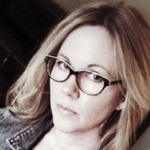It’s a hard truth of the digital age: Capturing and keeping another person’s attention is getting more difficult. While the empirical evidence on the average person's attention span during a presentation is limited, the phrase "death by PowerPoint" rings all too true. IT leaders know from experience that audiences lack patience for ineffective speakers. That’s why it’s more important than ever for all of us to be thoughtful about how to deliver information.
[ Which IT roles are vanishing? Read our article, 4 dying IT jobs. ]
Thankfully for CIOs and other leaders in training, there are abundant tips from skilled presenters on how to elevate your performance before your next appearance – on stage at a conference, before the board or executive team, or even in front of your own organization. This no-nonsense advice will help you win – and keep – your audience.
1. The secret structure of great talks
Speaker: Nancy Duarte
Why do we sit with rapt attention listening to a compelling story yet find ourselves nodding off during most presentations? Communication expert Nancy Duarte spent time digging into the best stories from history, cinema, and literature – and also suffering through some of the worst presentations she could get her hands on – to explore the differences and come up with a winning model for great presentations. In this talk, Duarte explores the secrets and structures of the greatest communicators and their public speaking efforts – from Martin Luther King Jr.’s “I Have a Dream” speech to Steve Job’s public unveiling of the iPhone. She shares with the audience the common storytelling structure utilized by compelling presenters that you can apply to your next effort.
2. The beauty of data visualization
Speaker: David McCandless
Data is the lifeblood of IT, the business, and many an IT leader presentation. But on its own, data can be lifeless – or worse, ineffective or misleading.
British data journalist David McCandless is skilled at transforming complex data sets into engaging data visualizations that are not only lovely to look at but also instantly bring to life the stories within the data. Data is not the new oil, he says, but the new soil – “a fertile, creative medium” – if you know how to manipulate and design it. McCandless shares his tips for visualizing information so that an audience can see the patterns and connections that matter.
3. How to speak so that people want to listen
Speaker: Julian Treasure
The first thing IT leaders consider when preparing for a presentation might be the visuals, the words, or even the best outfit to wear – all important components. But they may be overlooking one of the most important instruments in their toolkits: Their voices. Sound and communication expert (and five-time TED speaker) Julian Treasure argues that what you say may be less important than how you say it, and outlines some of the most important aspects of vocal delivery.
4. Your body language may shape who you are
Speaker: Amy Cuddy
With nearly 50 million views, social psychologist Amy Cuddy’s now well-known TED Global 2012 Talk can help IT leaders harness another important aspect of presenting: body language. Her talk is not simply about how body language impacts how others see us, but also how we see ourselves. In this video, IT leaders can learn all about the “power pose” – a way of standing confidently like Superman or Wonder Woman. While there was some criticism of the science behind Cuddy’s research about power positions and their impact on hormones, which she has since refuted, IT leaders can try the posing advice out for themselves before stepping on the stage or into the boardroom.





